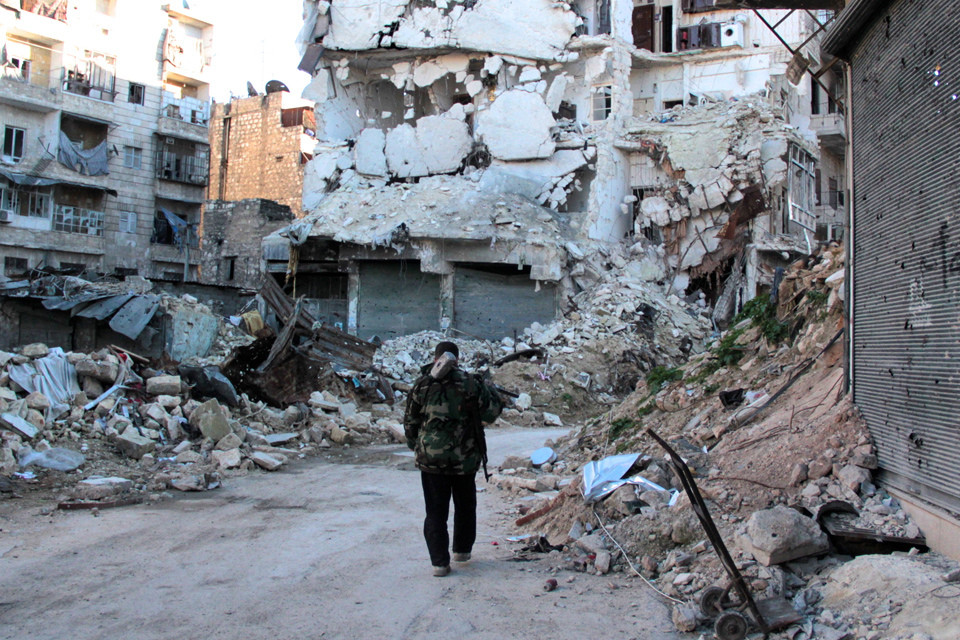 The civil war in Syria has been going on since 2011 with no end in sight. Hundreds of thousands of people have died and millions have sought refuge. The civil war has also allowed the Islamic State to thrive. This terrorist organisation is not only suppressing people in Syria, but is also behind many cruel attacks including the recent ones in Paris and Brussels. As academics, we have been slow on the uptake. Few academic journals, in particular, have published quality articles on these important issues. This is inexcusable. I could therefore not think of a more important topic for my inaugural August 2016 issue which requires our attention. The forum on Syria, the Islamic State and Terrorism contains three articles. They are available via Free Access (no paywall) until December.
The civil war in Syria has been going on since 2011 with no end in sight. Hundreds of thousands of people have died and millions have sought refuge. The civil war has also allowed the Islamic State to thrive. This terrorist organisation is not only suppressing people in Syria, but is also behind many cruel attacks including the recent ones in Paris and Brussels. As academics, we have been slow on the uptake. Few academic journals, in particular, have published quality articles on these important issues. This is inexcusable. I could therefore not think of a more important topic for my inaugural August 2016 issue which requires our attention. The forum on Syria, the Islamic State and Terrorism contains three articles. They are available via Free Access (no paywall) until December.
Magnus Lundgren is one of the few academics who has studied the various mediation initiatives for Syria in-depth. His article “Mediation in Syria: initiatives, strategies, and obstacles, 2011–2016” shortly discusses the mediation attempts by Nabil al-Arabi, Kofi Annan, Lakhdar Brahimi and Staffan de Mistura. He continues by analysing why mediation has been so difficult. He concludes by outlining the various options in Syria. Overall, his assessment is far from optimistic: “the war in Syria will continue for quite some time”, partially because the Islamic State is not participating in any mediation activities.
This leads to the second article “The ambivalent coalition: doing the least one can do against the Islamic state” by Stephen M. Saideman. He analyses in greater depth the effort degrade the Islamic State. Following his previous work on multinational warfare in Afghanistan and Libya, he seeks to explain which countries actually contribute to the international coalition against the Islamic State. He offers three explanations: the lessons from Afghanistan/Libya; the extent to which countries are threatened by the Islamic State; and domestic politics of contributing countries. He finds that the discrepancies between the contributors to be significant with the United States carrying (yet again) the very large majority of the burden.
The final article is about the war at home. Christian Lequesne writes about “French foreign and security challenges after the Paris terrorist attacks“. The two terrorist attacks in January and November 2015 have affected the French psyche is ways difficult to imagine for outsiders. France is the only European country consistently using the rhetoric of “war” in its actions against terrorism. As Lequesne shows, these attacks have not only changed the relations between state and society in France. They have also led to increasing mistrust in the EU and military activism alongside the United States. The Gaullist paradigm of exceptionalism is no longer.
These three articles should help to trigger further academic debate. At Contemporary Security Policy we would like to receive further submissions on Syria, the Islamic State and terrorism, or indeed any topic of considerable contemporary relevance. It is important that, as academics, we make our insight and methods available on topics where we lack sufficient understanding.
Hylke Dijkstra, Editor-in-Chief